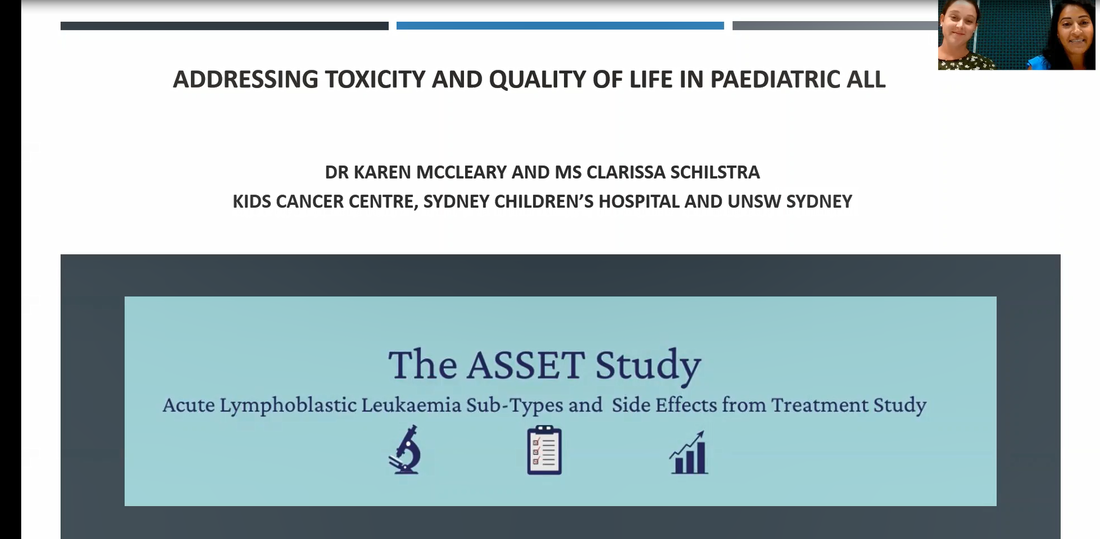 Welcome to the ASSET study blog! We hope to use this space to share updates about the study and its outcomes with you. To date, the ASSET study has enrolled 260 children to participate in the main study, and 158 parents have completed one or more surveys as part of the health-related quality of life sub-study. We thank all of these families for their support of our research! You can find recent publications arising from the ASSET main study and health-related quality of life sub-study on our publications page. If you would like a copy of any of these publications, please contact our team at [email protected]. To kick off our first blog post, we are excited to share that we recently presented some early outcomes from our ASSET main study and health-related quality of life sub-study at the European Society for Paediatric Oncology annual meeting. Dr Karen McCleary, paediatric oncologist and ASSET study investigator, and Ms Clarissa Schilstra, the Health-Related Quality of Life Sub-Study coordinator, delivered the presentation. Some key things we have learned from ASSET so far include:
Some things we are working on going forward include:
If you have any questions about any of these outcomes, or about the ASSET study, please feel free to contact us at any time at [email protected].
0 Comments
|
AuthorWrite something about yourself. No need to be fancy, just an overview. ArchivesCategories |
 RSS Feed
RSS Feed
